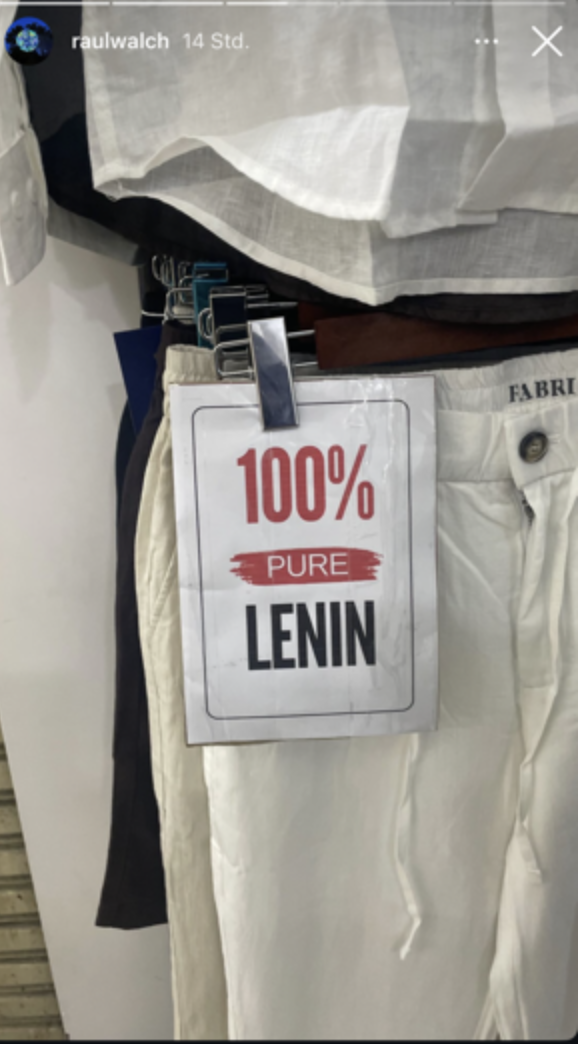Look at what the Kat dragged in 02/2025
“A woman under the influence”
For the past two weeks, I’ve been speeding through core-EU (Brussels/Paris), witnessing the grubby remnants of statesmanship and deliberation. The conference and summit circus is an unavoidable sideshow in the world of funding. From a semi-safe distance, it’s striking to see how quickly institutions and perceived securities can unravel.
With Germany’s election looming next weekend, I anticipate four highly uncomfortable years. None of the candidates inspire confidence; their lack of intellectual independence will come at a cost—especially for those most vulnerable to political attacks and austerity measures. I, for one, have drawn my conclusions (cliffhanger for the end of the newsletter). Onwards.
For most of the week, I’ve been soaking in my bathtub, tuning out Berlinale, and trying to flush any lingering notions of vengeance from my system (it remains). Having said that: Rather than relying solely on the courts to push back, it’s obviously the time to step out of ones comfort zone and bathroom, actively defend democratic achievements, and safeguard institutions.
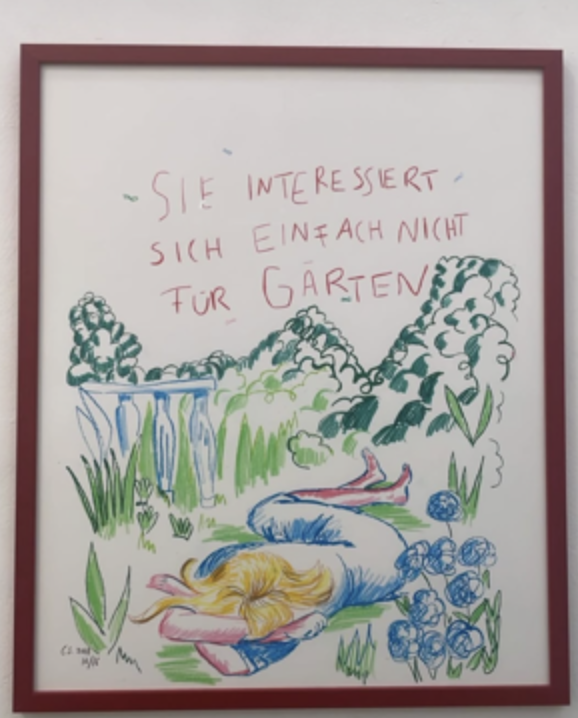
Things we missed (here, there and everywhere)
Samuel Haitz- Projection (at Grotto)
- Samuel Haitz’s recent exhibition Projection explored the interplay between biography, memory, and artistic appropriation: The show drew from New York Diary, a collection of journal entries by late poet Tim Dlugos, who documented his first arrival in the city during the 1970s chronicling queer life, artistic circles, and everyday moments - until his death from AIDS related complications. His diary offered intimate insights into the city’s literary scene (who dined with whom, who was romantically involved with whom, historians obviously love the trace data)—capturing a core cultural moment in meticulous detail. Haitz layers his own experiences onto Dlugos’ narrative, creating a dialogue between past and present.
PS: I love this one by Dlugos especially: It used to be more fun to be a poet- “It used to be more fun when other places seemed better, more noble than America— even the obsessive, money-grubbing swamp of sanctimony that’s America these days!”
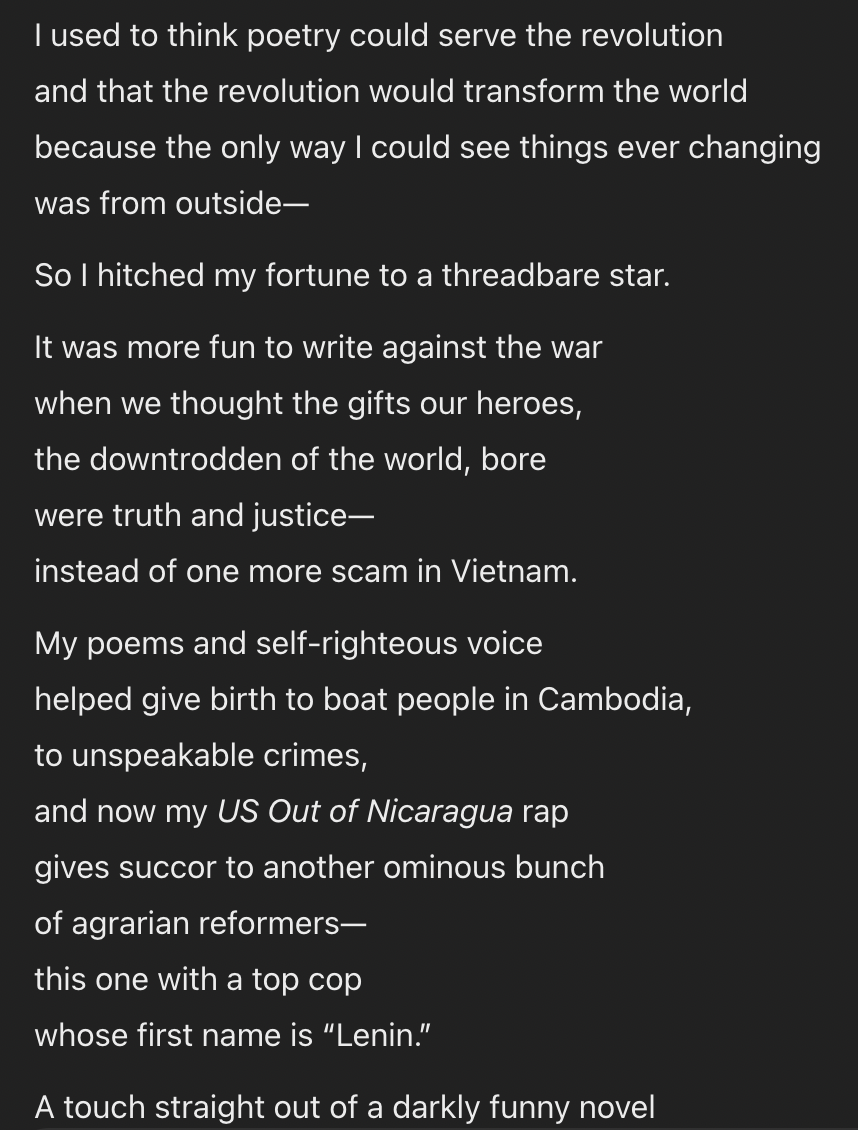
It used to be more fun to be a poet. additionally, check out this book release that we all missed in December:
- Richard is an artist’s book by photographer and director Manuel Wetscher, featuring a unique archive of (very familiar for these specific period of time, I have to add) photos by his late father, Richard Jenewein. The artist uncovered the album only after his fathers death from AIDS—a fact long hidden by the family. Framed within a period from the late 1980s to 1993, Wetschers work spans loss, painful biographies, identity and altered narratives.
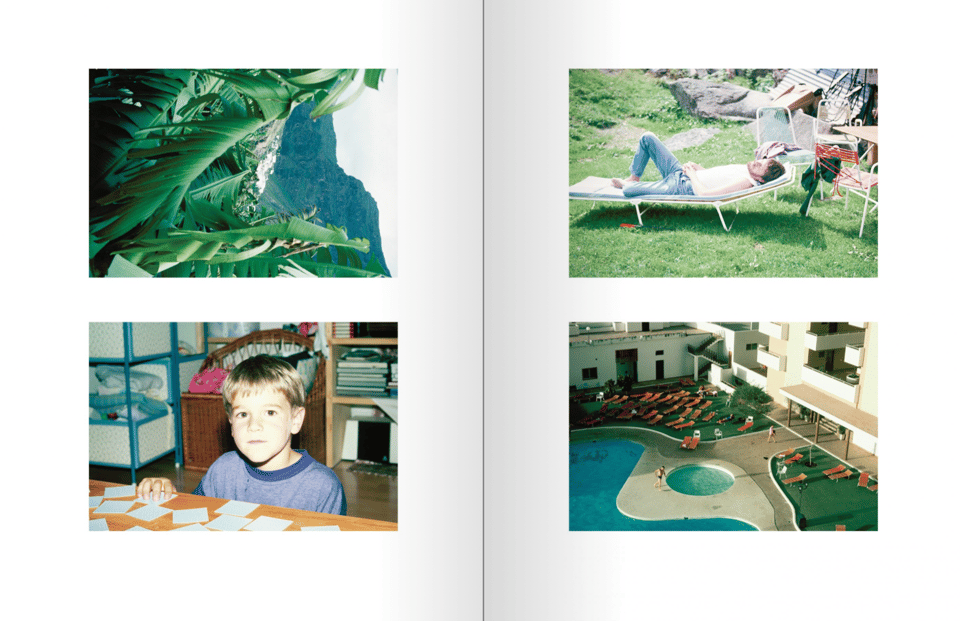
The world as Richard saw it
CO-RESISTANCE AND POLITICAL IMAGINATION: Superrr / Zarah recently convened a panel on Co-Resistance and Political Imagination in Palestine and Israel with Dr. Rula Hardal, Palestinian co-director of A Land For All: Two States One Homeland, Israeli designer and peace activist Mushon Zer-Aviv. The conversation explored the challenges of fostering political imagination (in Israel and Palestine) today, Germany’s responsibility (or lack thereof) toward Palestine, and how moments of crisis can create space for new political possibilities.
Micropolitics Revisited: The Trouble with the Scale of Interpersonal Life (Michael Lempert – Gesture and Power @ ICI Berlin)
- Scales quantify everything from length and temperature to popularity and affect. Since the mid-20th century, social scientists have struggled with the challenge of studying face-to-face interaction—fascinated by its nuances yet frustrated by its scale. To capture subtleties, they turned to dictation machines and film. This talk revisited the 1970s, when scholars and activists reframed interaction as a political arena where systems like authoritarianism, heteropatriarchy, and anti-Black racism played out. Their efforts to expose these dynamics through recordings and transcripts raised a key question: How did micropolitics connect to mass politics? Michael Lempert’s latest book, From Small Talk to Microaggression: A History of Scale explores how face-to-face interaction became an object of scientific scrutiny in mid-20th-century America.
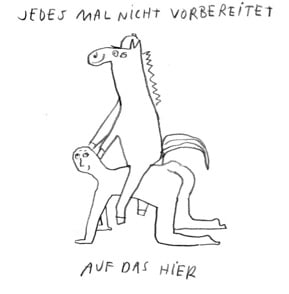
Source: Internet Book presentation: Philipp Felsch – Der Philosoph: Habermas und Wir
-For as long as Philipp Felsch, (a master of storytelling in the realm of intellectual history) could remember, uberphilosopher Jürgen Habermas has been a constant presence—an admonishing voice of reason, a key figure in Germany’s culture of remembrance, or simply: the son of his grandparents’ neighbors in Gummersbach. But is the philosopher’s intellectual dominance fading, is he losing his edge, or do his ideas gain new urgency in today’s era of upheaval? In is most recent book Felsch delves into Habermas’s vast body of work, traces his role in the intellectual battleground of postwar Germany, and travels to Starnberg for tea with the thinker himself. The result is not just a portrait of a fascinatingly contradictory mind but also of the epoch he helped shape.
Transmediale - happened, accompanied by protest (at least something) - nobody ever really knows what an given event it’s going to like, or what these descriptions even mean, but these caught my eye:
Martine Syms - Total (Lafayette Anticipations, Paris)
Total (Martine Sums) dealt with the generalization of surveillance and the permanent capture of our image as powerful dynamics in the construction of identities. What if we were all actors in a film in perpetual production? What if “reality” was written by images? (So good!)
Substance of Power (HKW)
- Substance of Power is an ongoing artistic research project by Gosia Lehmann and Valerian Blos, exploring the relationship between chemical substances and systems of domination. Today, the influence of ‘substances of power’ is both pervasive and, to some extent, democratized. Pollution and waste disproportionately harm vulnerable communities, yet new toxic agents like microplastics circulate through all living beings, regardless of status. Sensory experiences highlight the bitter reality of late-stage technological consumerism and capitalist consumption cycles—revealing how substances ultimately become part of our own ‘fleshy hardware,’.
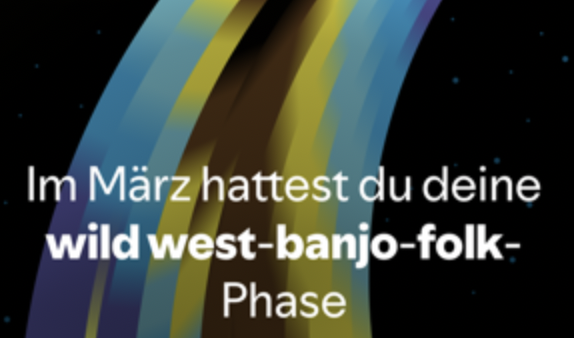
…
Things to do and see
Several dates, first reading on March 6th: Readings in Dialogue (Das MINSK) (accompanying exhibition In Dialogue-Art from the GDR)
- “In Dialogue” explores dialogue as way to engage with art produced in the former GDR: In 1976, the publication Ateliergespräche (Studio Conversations) introduced a rare, open discussion format in the country’s still-developing art historiography- Artists expanded their thoughts about their work, sociopolitical issues, and personal motivations. This subjective shift hinted at a loosening of cultural policies but was overshadowed by major political events—such as Wolf Biermann’s expatriation and Oskar Brüsewitz’s self-immolation—highlighting the tensions and contradictions of the times. Building upon the exhibition’s idea of illuminating different (at times contradictory) perspectives, authors like Charlotte Gneuß, Carolin Würfel, Annett Gröschner, Peggy Mädler, Wenke Seemann, Paula Fürstenberg, and Peggy Kurka offer insights from literature, explore new narratives, and place the stories about the GDR in a contemporary context.
additionally (no, its not my Finsta):
Feb 20th (first date): Series- Crossroads: Literature Meets Art (Hamburger Bahnhof)
- The Crossroads series at Hamburger Bahnhof creates a meeting point between art and literature, where authors and painters, sculptors and writers, multimedia artists and poets come together in the museum. The opening event features a dialogue between writer Helene Hegemann and painter Daniel Richter, discussing art, literature, and the influences that transcend traditional genre boundaries.
Now: Access Kafka (Jewish Museum Berlin)
- Access and exclusion are central motifs in Kafka’s oeuvre, with unsettling depictions of disorientation, surveillance, and arbitrary rules. In today’s (digital) era, these concerns take on new relevance as social networks, AI, and algorithms shape access and define conditions for social participation, blurring the boundaries between private and public life.In the exhibition, Manuscripts and drawings from Franz Kafka’s estate are presented alongside contemporary works by artists such as Yael Bartana, Maria Eichhorn, Anne Imhof, Martin Kippenberger, Maria Lassnig, Trevor Paglen, and Hito Steyerl. The exhibition explores the universal and timeless theme of freedom, and ability to enter or exit both physical and virtual spaces.
From March: Käthe Kruse – It’s All Good Now (Berlinische Galerie)
- Käthe Kruse has been a key figure in West Berlin’s art scene since the early 1980s. As a member of the influential collective Die Tödliche Doris (1982–1987), she worked at the intersection of performance, music, text, painting, and film, challenging the city’s established art world. Her solo projects have maintained this cross-genre approach and embrace of deliberate amateurism.

Whenever: The Pankow Powerholders (ZZF Potsdam/Schloss Schönhausen)
- This exhibition in the gatehouses of Schönhausen Palace explores the history of Majakowskiring after 1945, framing it within the GDR’s power structures. It offers insights into the daily lives, public image, and increasing alienation of East Germany’s ruling elite. Niederschönhausen (Pankow) became a political center after 1945. By 1949, almost the entire East German leadership had relocated to Majakowskiring and an extensive support system ensured the elite’s lifestyle. In West Germany, "Pankow" became synonymous with the SED regime, its privileges, and its dependence on Moscow. (The leadership’s isolation deepened further in 1961 with the move to the Waldsiedlung Wandlitz, reinforcing the disconnect between leadership and the East German population.)
March 5th: Monopoly of the Tech Giants (Rosa-Luxemburg-Stiftung- LIVE recording of the Future Histories Podcast feat. Prof. Cecilia Rikap)
- The episode will discuss the intellectual monopoly of big tech companies, adressing how they plan innovation and production beyond company boundaries, and in the process appropriate knowledge rents from smaller companies, universities, and government research labs. Rikap is drawing from her upcoming book with Verso to map how democratic alternatives to big tech monopolies could look like, and what steps can be taken to limit the companies power.

credit: Paul Feigelfeld Feb 22nd: Edithaton Frag den Staat → AFD Verbot
- What does it take to push for an AFD Ban before its too late? Solid, court-proof data exposing the party's (without any doubt in analysis) unconstitutional stance. On February 22, FDS will lay the foundation for a database advancing this crucial debate. A ban will require hundreds of documented instances of the party's anti-democratic actions and statements—whether through speeches, programs, or activities. This is about legally viable evidence and well worth our time.
Feb 19th, (fully booked): Authoritarian Masculinity (ICI Berlin)
- The event features a screening of Stau (Thomas Heise, 1992), a stark documentary dissecting right-wing extremist youth in Halle-Neustadt. Led by Klaus Theweleit, a follow-up panel will explore authoritarian masculinity, a field Theweleit helped shape with his book Männerphantasien (1977). Theweleit’s research on nationalist Freikorps soldiers, their militarized bodies, and violent social dynamics offers insight into contemporary political debates - joining the discussion are Claudia Bruns, Xenia Müller, and Justus Heitzelmann, who examine intersections of masculinity, colonialism, antisemitism, speculative fiction, and film history.
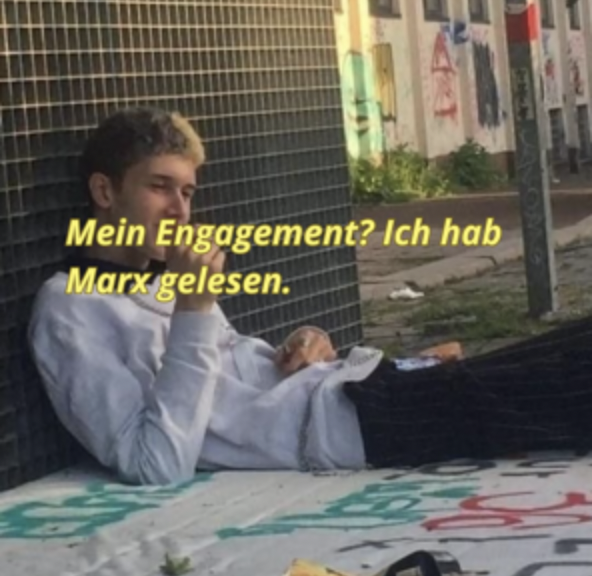
Source: Internet Things from the Internet
https://berge-versetzen.com (Grassi Museum Leipzig)
- Berge Versetzen seeks to return the summit stone of Mount Kilimanjaro, taken by colonial geographer Hans Meyer in 1889, to Tanzania. Artist collective PARA invites the public to fund this restitution by purchasing replicas of the peak, produced at the GRASSI Museum in Leipzig. To escalate the initiative, PARA has removed the top six centimeters of Germany’s highest mountain, the Zugspitze, holding it as a “hostage.” The Zugspitze’s peak will only be restored once Kilimanjaro’s summit stone is returned, turning the project into a symbolic act of repatriation and colonial reckoning.
- The MOMAS R&D department and its salons serve as both a testing ground and a catalyst for innovation in museums, providing critical tools and insights to shape new directions for MOMA specifically and the broader museum field by extension. Each salon, carefully curated by Paola Antonelli, explores a timely topic worthy of broader attention on both sides of the Atlantic.
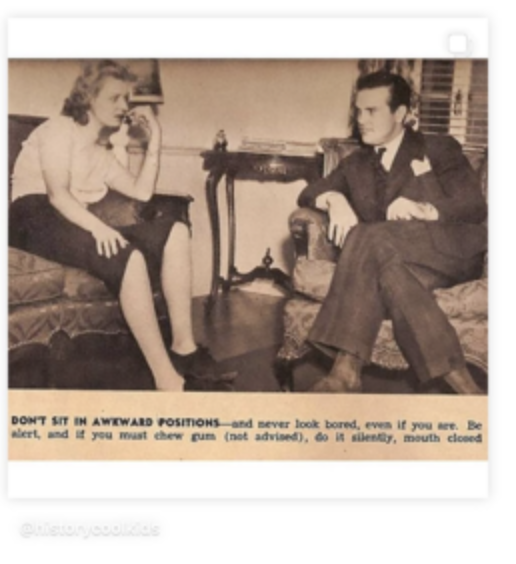
don’t sit in awkward positions Open Infrastructure Map is a view of the world's infrastructure mapped in the OpenStreetMap database.
related- reading list: Stuff Our World Runs On
- I´m so grateful for this collection on infrastructures, because this is where the good stuff is coming from.
That’s all. For now. Next weekend without any doubt will be disappointing - let’s all be grateful that dry January ended- and then organise. K.

PS: Best book I read this month <3 Osang!

